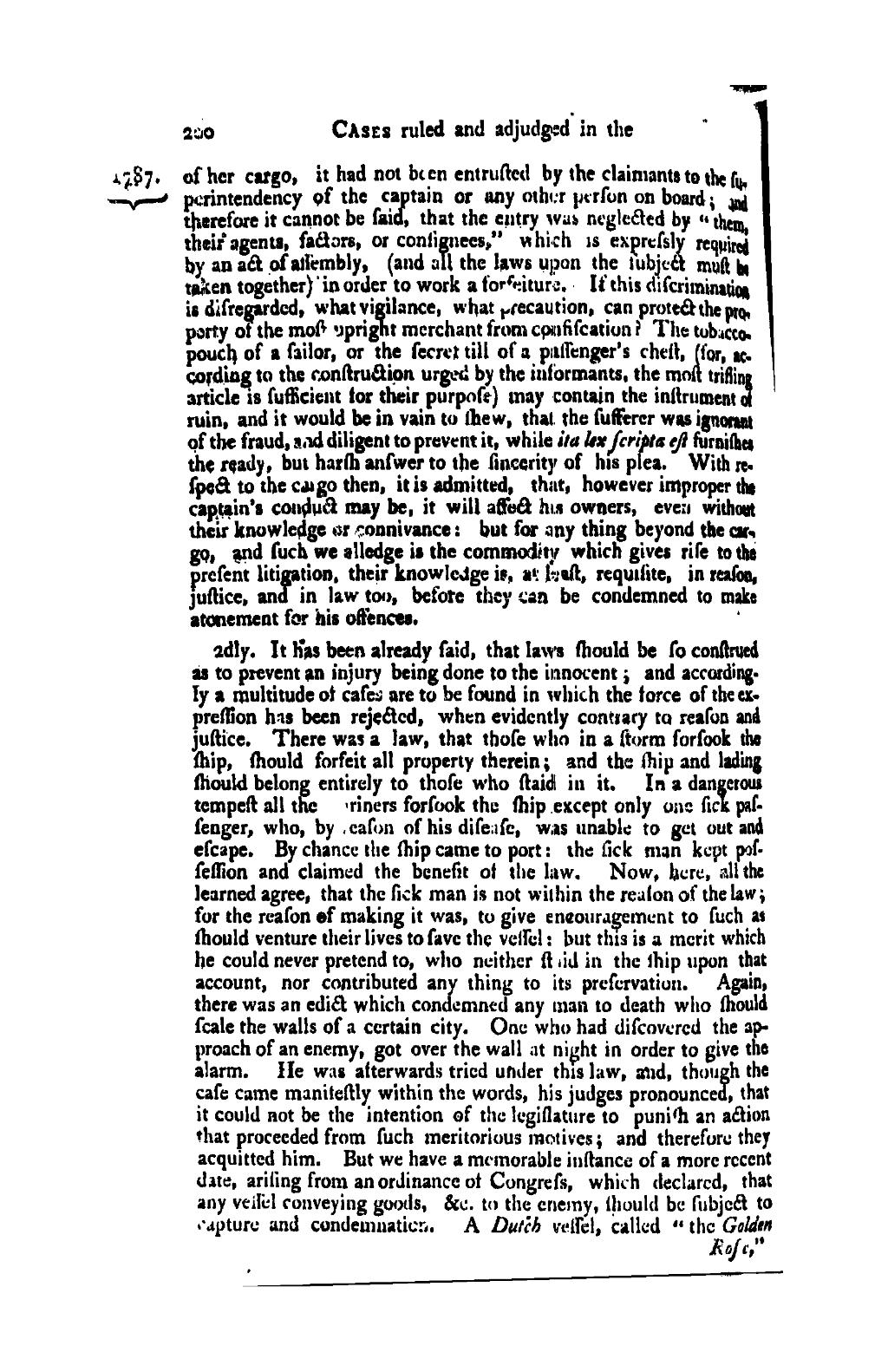1787.![]()
of her cargo, it had not been entrufted by the claimants to the fuperintendency of the captain or any other perfon on board ; and therefore it cannot be faid, that the entry was neglected by “ them, their agents, factors, or confignees,” which is exprefsly required by an act of affembly, (and all the laws upon the fubject muft be taken together) in order to work a forfeiture. If this difcrimination is difregarded, what vigilance, what precaution, can protect the property of the moft upright merchant from confifcation? The tobacco-pouch of a failor, or the fecret till of a paffenger's cheft, (for, according to the conftruction urged by the informants, the moft trifing article is fuficient for their purpofe) may contain the inftrument of ruin, and it would be in vain to fhew, that the fufferer was ignorant of the fraud, and diligent to prevent it, while ita lex ʃcripta eʃt furnifhes the ready, but harfh anfwer to the fincerity of his plea. With refpect to the cargo then, it is admitted, that, however improper the captain's conduct may be, it will affect his owners, even without their knowledge or connivance : but for any thing beyond the cargo, and fuch we alledge is the commodity which gives rife to the prefent litigation, their knowledge is, at leaft, requifite, in reafon, juftice, and in law too, before they can be condemned to make atonement for his offences.
2dly. It has been already faid, that laws fhould be fo conftrued as to prevent an injury being done to the innocent ; and accordingly a multitude of cafes are to be found in which the force of the expreffion has been rejected, when evidently contrary to reafon and juftice. There was a law, that thofe who in a ftorm forfook the fhip, fhould forfeit all property therein ; and the fhip and lading fhould belong entirely to thofe who ftaid in it. In a dangerous tempeft all the mariners forfook the fhip except only one one fick paffenger, who, by feafon of his difeafe, was unable to get out and efcape. By chance the fhip came to port : the fick man kept poffeffion and claimed the benefit of the law. Now, here, all the learned agree, that the fick man is not within the reafon of the law ; for the reafon of making it was, to give encouragement to fuch as fhould venture their lives to fave the veffel : but this is a merit which he could never pretend to, who neither ftaid in the fhip upon that account, nor contributed any thing to its prefervation. Again, there was an edict which condemned any man to death who fhould fcale the walls of a certain city. One who had difcovered the approach of an enemy, got over the wall at night in order to give the alarm. He was afterwards tried under this law, and, though the cafe came manifeftly within the words, his judges pronounced, that it could not be the intention of the legiflature to punifh an action that proceeded from fuch meritorious motives ; and therefore they acquitted him. But we have a memorable inftance of a more recent date, arifing from an ordinance of Congrefs, which declared, that any veffel conveying goods, &c. to the enemy, fhould be fubject to capture and condemnation. A Dutch veffel, called the Golden
Roʃe,
